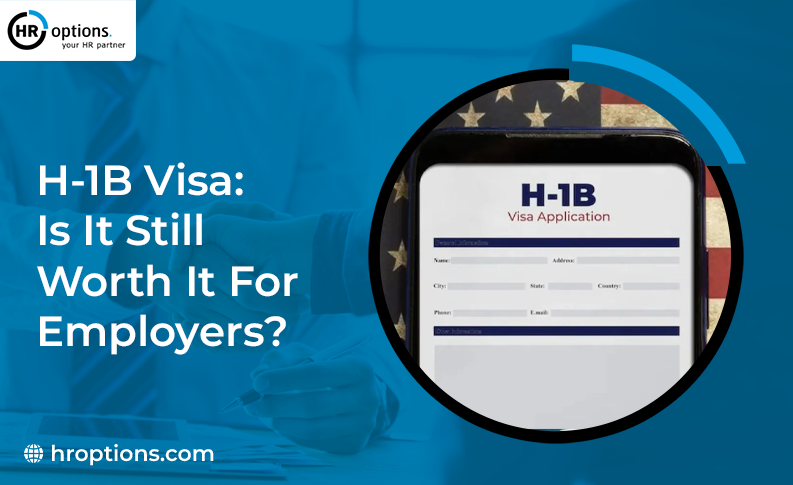CONSIDERING CONSULTANTS AND FREELANCERS
Every year since the Great Recession, more and more people are breaking away from the traditional career path and offering their services and expertise as independent consultants (IC) and freelancers.
WORKPLACE TRENDS #5: CONSIDERING CONSULTANTS AND FREELANCERS
 Kirk Herring
Kirk Herring
HR Project Manager | Sr. Recruiter
“What do you do for work?” Until recently, if you answered that question with “I am an independent consultant”, you might be viewed as unable to get a “real” job, unemployable or lazy. But in today’s job market that is the furthest thing from reality. With Baby Boomers retiring in record numbers, employers are faced with a lack of upper management talent that possesses the experience and knowledge needed to fill these voids. Internal talent to promote or advance is not always a good option. A recent study by Elance-oDesk shows that 52 million Americans are now freelancers, which is 34% of the American workforce. Video conferencing, secure off-site data servers, and advancement in real-time technology make supplementing your workforce with this growing talent base easier, reliable and cheaper than hiring a full-time employee. Since technology makes it easier for ICs to find work, and technology is always improving, people joining this workforce will grow year after year.
WHAT’S THE DIFFERENCE?
As you consider using this type of talent, evaluate your needs thoroughly. Although an IC and freelancer both offer performing work or services, there is a difference in what they offer.
Independent Consultant (IC) – A person who is paid to provide professional or expert advice in a particular field or specialty.
Freelancer – a person who works independently, selling work or services by the hour, day, or job, with no intent to pursue a permanent or long-term arrangement with a single employer.
An IC provides guidance on a particular area of expertise. Their work may encompass a more expansive scope which can include smaller projects that roll-up to the main project you hired them for. Their work may occur as part of a long-term or ongoing commitment, as opposed to having a definitive start or finish date.
A Freelancer takes initial direction from you, and then goes off and completes the assignment. Typically, this work is done off-site using tools and resources that you provide. You control nearly every aspect of the project, including the best way to complete the project in a reasonable timeframe.
THE BENEFITS
You will probably save money. Even though you may pay an IC or freelancer more money per hour than your employees, there are many additional costs associated with an employee that you are saving, which including; health benefits, PTO, office space, equipment, employment taxes, unemployment insurance, and workers’ compensation insurance.
Staffing flexibility. Working with ICs and freelancers allows you greater leeway in hiring and letting go of workers, which is advantageous of employers with fluctuating workloads.
They can get more work done. Since they set their own hours, they have the ability to work more hours on projects, either long-term or when necessary. Their schedules are entirely flexible, and they commit ahead of time to completing the project or tasks they have committed to.
They specialize in one thing. They are generally experts at one thing, and that is why you hired them.
Reduced exposure to legal action. Employees have a wide array of rights under state and federal law. An IC and freelancer are independent businesspeople and are not protected by many of these laws. Some of the reduced exposures are; the right to a minimum wage, protection from employment discrimination, and the right to take sick-leave or care for a new born child.

THINGS TO CONSIDER
As with most professionals, not all ICs and freelancers are created equal, so you must do your due diligence before hiring one. Whether using a consulting firm, or searching from numerous social media and consulting sites, here are a few things to look for in your IC or freelancer.
Experience – Look for someone already vetted and experienced as an IC, as well as niche experience in your industry. Get references, and look for out-of-the box thinking and the ability to keep your project on track.
Credentials – Many ICs have graduate degrees or certificates pertinent to your industry. They may cost a bit more, but their knowledge and efficiency are worth it.
Project Scope – Before hiring an IC or freelancer, you have to fully understand your internal needs. Make a plan, and a full description of the project and tasks ahead of time. Don’t approach this with a “how can you help us?” approach. Be specific and detailed in your needs to gain the most from your IC or freelancer.
Be Careful – There are steps to ensure protection for your organization when hiring an IC or freelancer. Consider detailed language in any written agreement that covers; unrestricted right to terminate the IC, limit claims of injuries the IC suffers on the job, ownership of ideas and work product, and a non-disclosure agreement. Also, if the IC or freelancer is working on-site using your company resources, be careful not to dictate a set work schedule for them. This could put the IC or Freelancer in the position to be considered an employee, which could then entitle them to full benefits under the law. The classification of an IC is chiefly based on “whether you have the right to direct or control the work performed”. The IRS and various state tax agencies use common law rules, as well as a “20 Factor Analysis” to determine the actual status of an IC. These factors fall into three categories:
Behavioral Control—regarding how a worker performs the work (e.g., instructions, training)
Financial Control—regarding the business aspects of the worker’s activities (e.g., unreimbursed expenses, payment method, services available to the relevant market)
Relationship of the Parties—regarding how the business and worker perceive their relationship (e.g., employee benefits, written contracts/intent of parties, discharge/termination)
The importance of these will vary depending on the type of work being done and the circumstances of your own particular case. Your goal should be to honestly assess how great a risk you’ll be taking if you plan to treat a worker as an independent contractor. Many small to mid-sized companies utilize a third party employer (AKA payrolling companies) to outsource the employment of contingent workers whom clients don’t want to hire directly and who don’t qualify as ICs. These are not PEOs (professional employment organizations). PEOs are co-employers with their clients. Third party employers manage all aspects of contingent employees and assumes employer liability for your IC and Freelance talent, as well as offering expert advice on the risks and benefits.

For over 35 years, HR Options® has provided highly personalized solutions aimed at identifying and filling supplemental human resource needs for clients throughout the U.S. and Canada. Whether augmenting your HR department or serving as a complete outsourced solution, our suite of services and experienced professionals will help you navigate through complex and ever-evolving employment regulations in the US and Canada.
GET EVERY NEW COVID-19 BEST PRACTICE RESOURCE
Receive exclusive access to our library of COVID-19 resources.
RELATED ARTICLES
WORKPLACE TRENDS #3: NOW HIRING – GENERATION Z
WORKPLACE TRENDS #4: SOCIAL MEDIA – ENGAGE AND EXCHANGE
WORKPLACE TRENDS #6: CUT HEALTHCARE COSTS OR CUT EMPLOYEES?
OTHER ARTICLES
How to Boost Productivity and Encourage your Team of Remote Workers
Why Use Third Party Employment Services
THE SPECIFICS TO CANADA’S EMPLOYMENT STANDARDS ACT
LET'S CHAT ABOUT YOUR HR OPTIONS
Chat below or call (800) 777-8944 for an immediate response.








